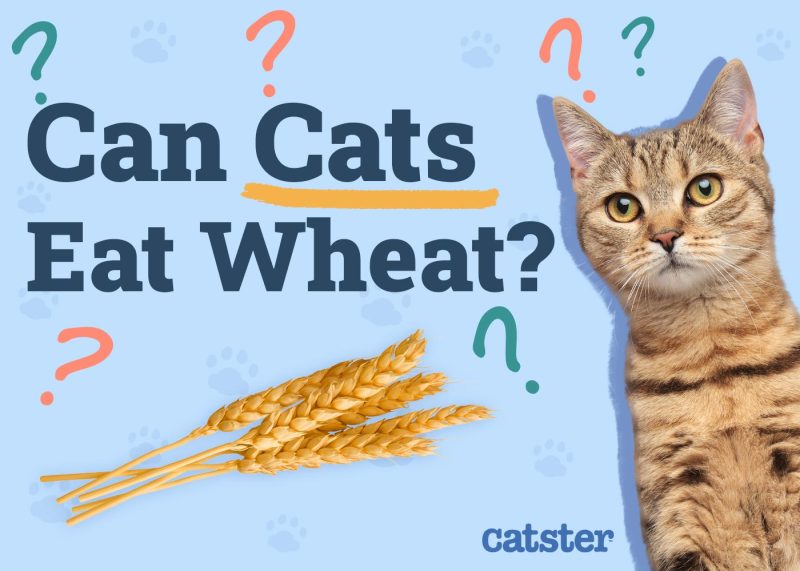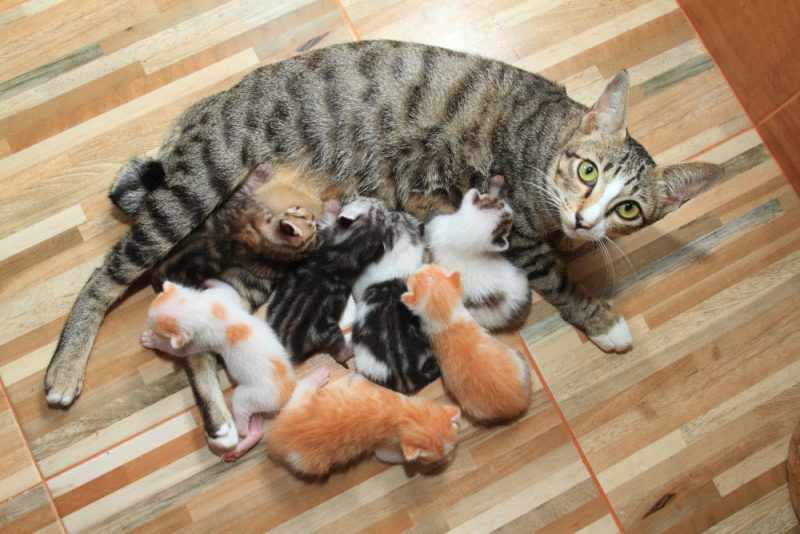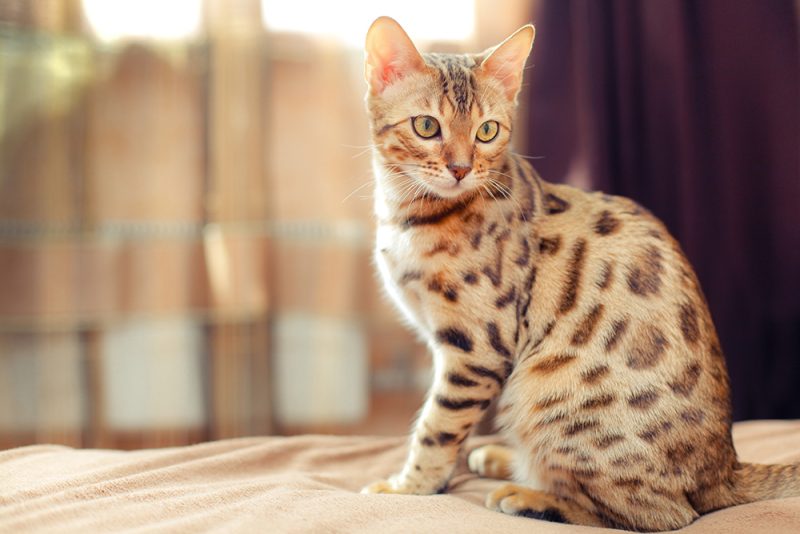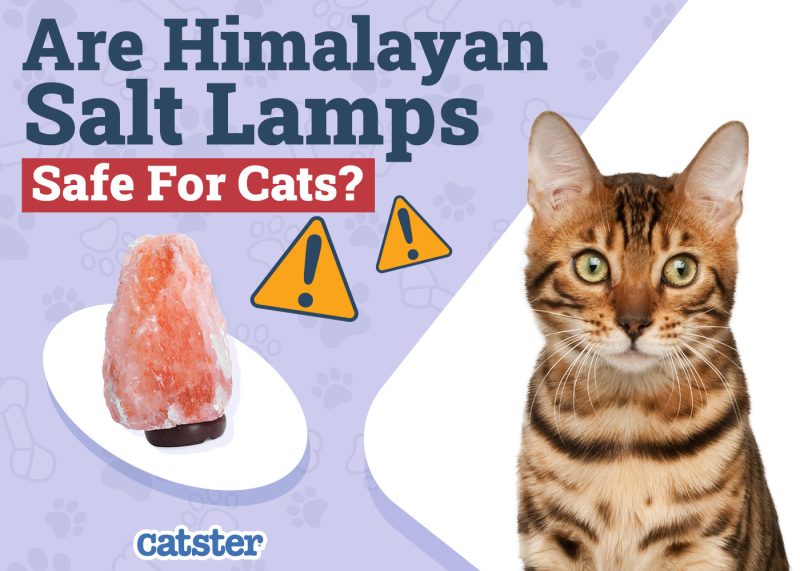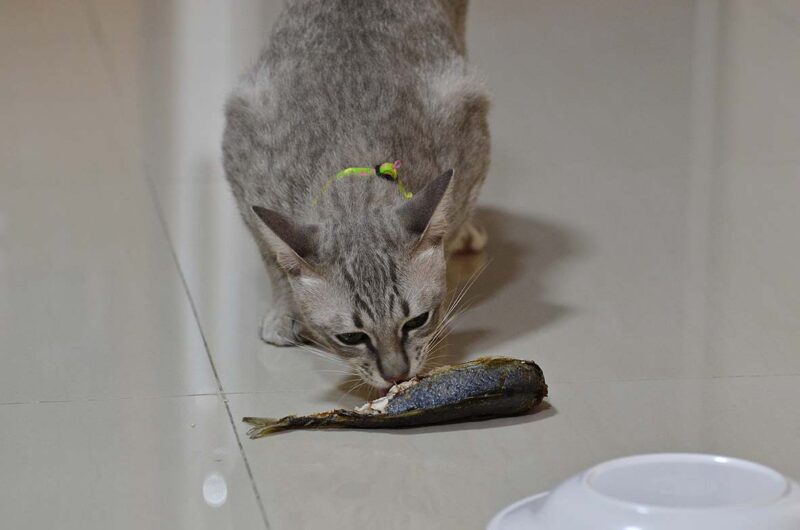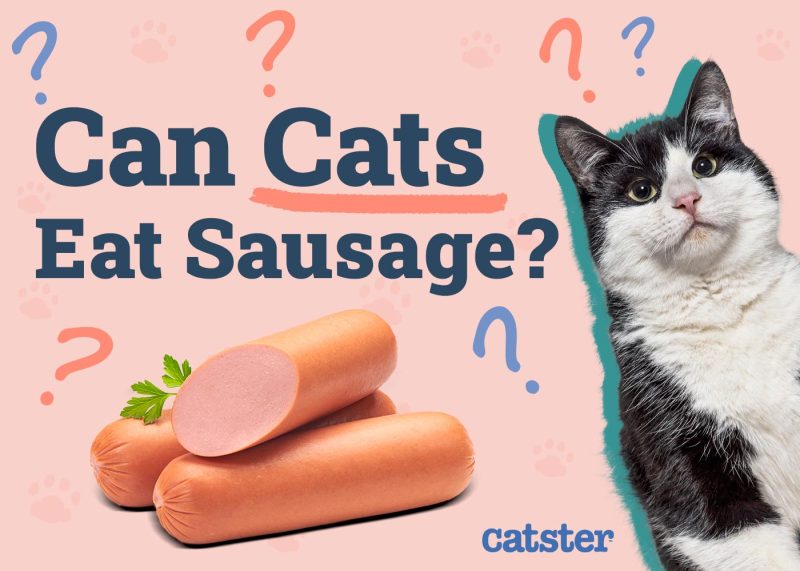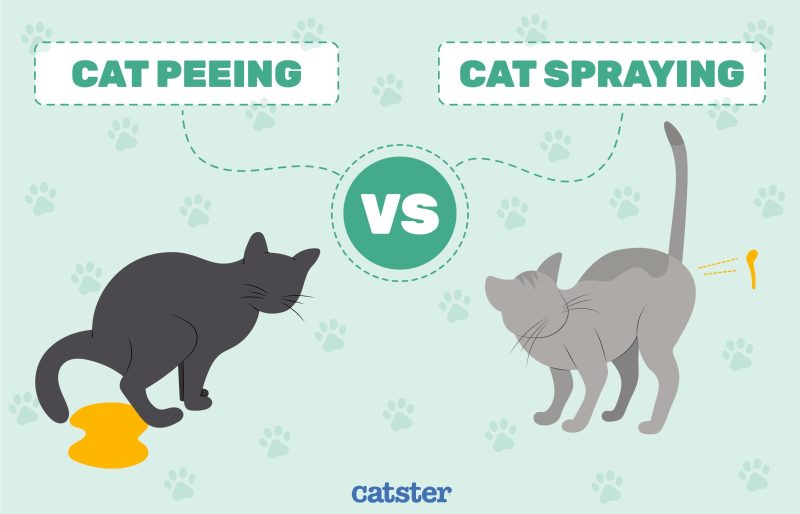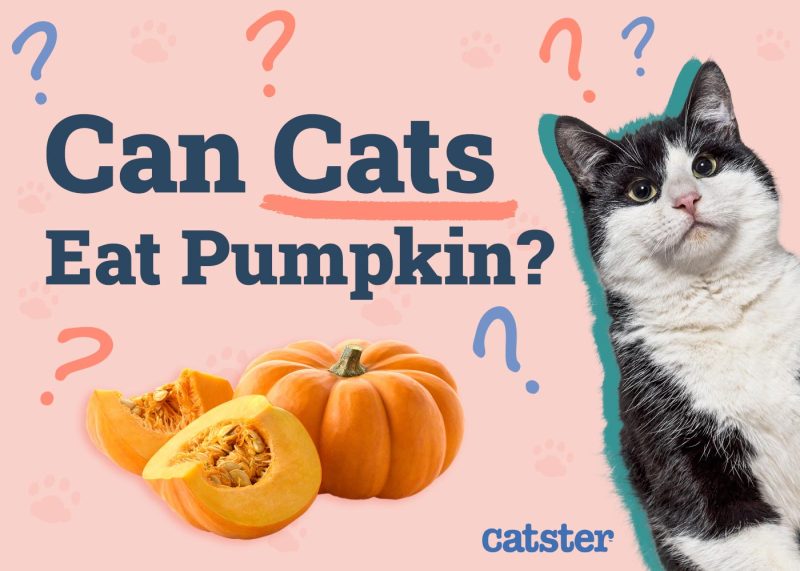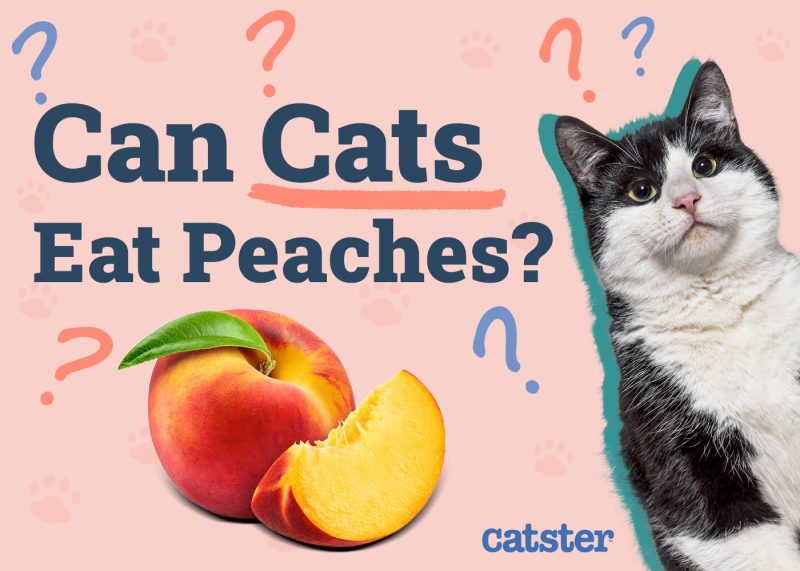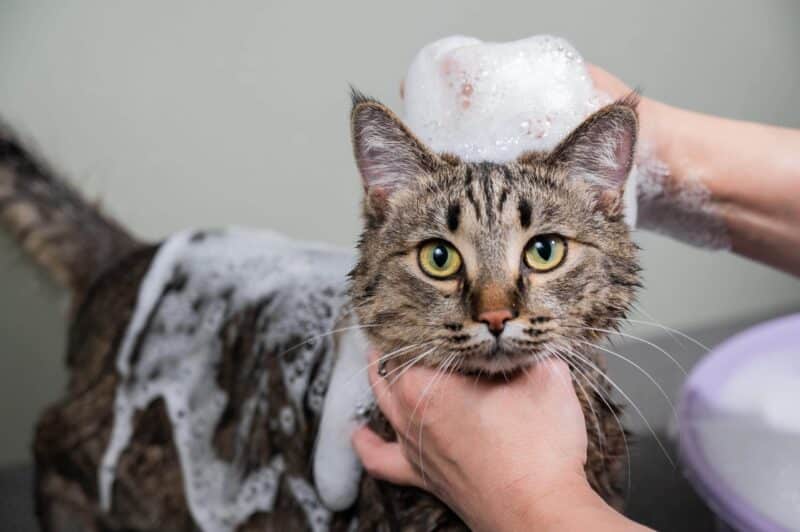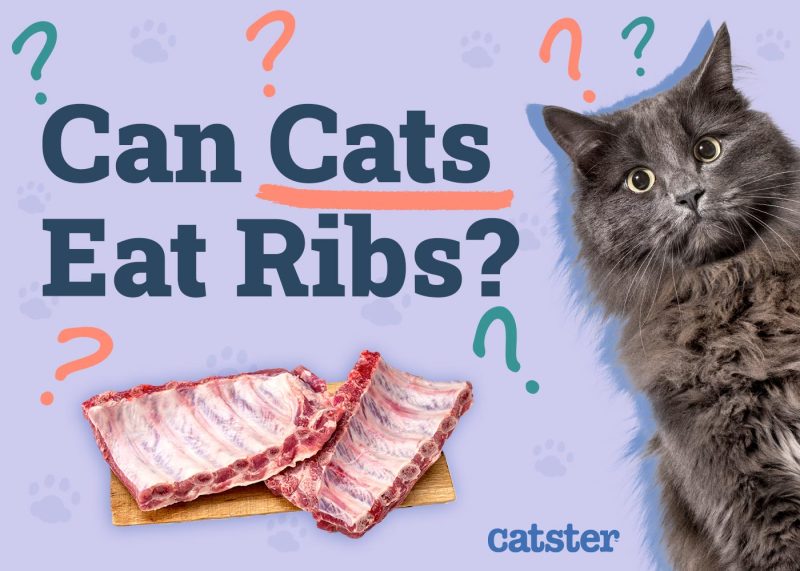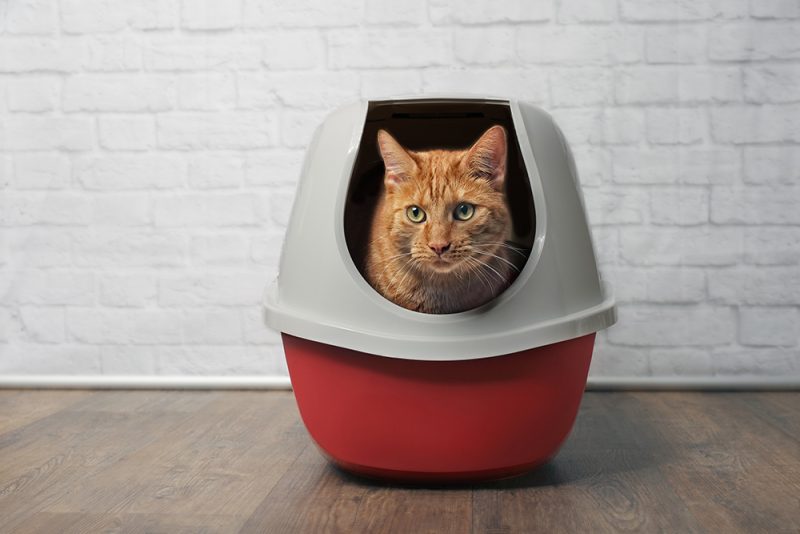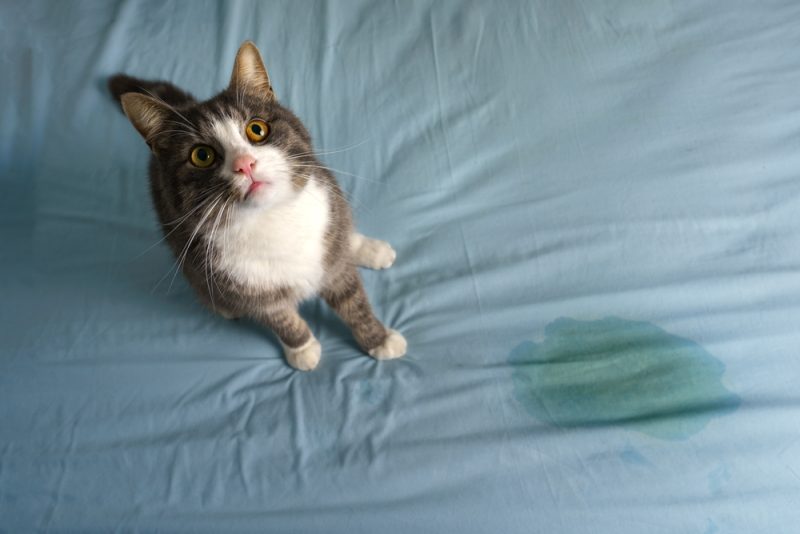Cats are always interested in eating, and it can be tempting to share food with these furry family members. But this isn’t always healthy for them, depending on what you’re eating. Cats may want to eat your food, but that doesn’t mean they should.
You might be wondering if wheat is healthy for cats to eat. Cats are obligate carnivores, meaning that they require nutrients from animal protein in their diets for their survival. They can’t live on fruits and vegetables, although cats can eat some of them without any problems. The same is true for wheat.
Wheat is not toxic to cats, but that doesn’t necessarily mean they should eat it every day. Read on for more information about the effects of wheat in a cat’s diet.

Wheat in Cat Food
Wheat is found in some commercial cat foods, usually in the form of wheat gluten meal or wheat flour. This is a protein concentration that chemically adds to the protein value of the food. It also binds the ingredients to form kibble.
If you read the ingredient label on your cat’s food package, you’ll be able to see if this is listed. Grain-free foods will contain no wheat.
If your cat does not have a grain allergy, then the amount of wheat in their food is perfectly safe for them to eat. It can aid in digestion by giving them more fiber in their diet. Wheat also adds to the vitamin and mineral content of the food.
If you see wheat in the ingredient list, just make sure it’s not the primary ingredient. The main ingredient in your cat’s food should preferentially be protein from an animal source.
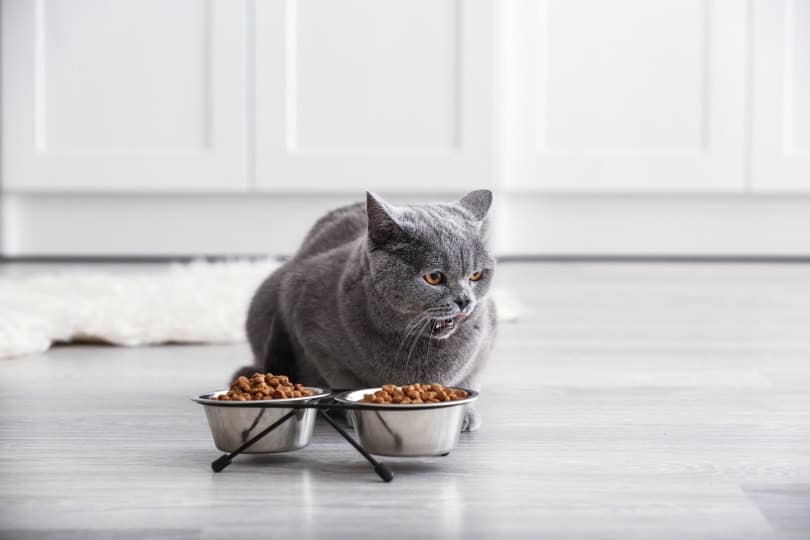
How to Tell if Your Cat Has a Wheat Allergy
Wheat allergies are rare in cats, but they can happen at any time. Even if your cat has eaten food with wheat in it for years, they can suddenly develop an allergy to it. The gluten in wheat is usually what triggers allergic reactions.
- Incessant scratching without relief
- Over-grooming that results in hair loss or wounds due to itchy skin
- Inflamed, red skin
- Recurrent ear infections
- Vomiting
- Diarrhea
- Frequent, painful bowel movements
If you notice any of these signs, it’s best to schedule an appointment with your vet. If food allergies are suspected, they will likely recommend a food trial to determine the trigger. If you stop feeding your cat wheat for a certain number of weeks and then return to it, you’ll be able to see if the symptoms disappear and then start again. Then you’ll know for sure if your cat has a wheat allergy.
Sometimes, your cat could have an intolerance to an ingredient besides grain. Protein sources are a more common trigger for allergies and intolerances. These will usually manifest in digestive issues, like diarrhea and gassy, gurgling stomach and itchy skin problems. A new food that still includes grain but has a different protein source may work just fine. An experienced vet is your best source of information on the proper diet for your cat.
Need veterinary advice but can't get to the clinic? Catster recommends PangoVet, our online veterinary service. Talk to a vet online and get the answers and advice you need for your cat without having to leave your living room — all at an affordable price!

If Your Cat Does Have a Wheat Allergy
If it’s determined that your cat has a wheat allergy, there’s nothing to worry about because the remedy is a diet change. You’ll also have to make sure any treats or table food that you offer to your cat do not contain wheat or gluten. If your cat uses wheat litter, this will also need to be changed.
Can Cats Eat Wheat Bread?
Provided that your cat can tolerate wheat, small pieces of whole wheat bread are fine to give them as occasional snacks. Bread doesn’t contain many of the nutrients that cats need, so while it’s an acceptable treat for them sometimes, it should not be the main part of their diet. Cats’ digestive systems are not made to digest large amounts of wheat.


Do Cats Need Wheat?
Cats don’t need wheat in their diet to be healthy. Their daily diet should closely mimic the diet that they’d eat in the wild. This diet isn’t all meat, but more than half of their daily calories should be from a meat source.
Diets similar to this are easy to find on the market today. The healthiest option for your cat is one that includes protein, like chicken, turkey, and fish. Carbs and healthy fats should be included, but their content should not exceed that of protein.
Is Wheat Beneficial to Cats?
Cats can benefit from some wheat in their diet as long as they can tolerate it. Wheat is a good source of fiber, vitamins, minerals, and fatty acids. Protein in wheat is easily digested and can boost the overall protein content of the food. If your cat should gain weight or is deficient in certain nutrients, eating wheat in their food could help them get the nutrients that they need.
Why Can’t Cats Eat Only Wheat?
Cats may like wheat and receive some benefits from eating it, but it cannot replace their diet. Wheat doesn’t give cats everything that they need, and it would be better to remove it completely from their diet than offer it to them exclusively.
Taurine
The biggest reason that cats cannot live on wheat or grains alone is that taurine is essential to their survival. Taurine is an amino acid that does not occur naturally in cats. Some animals can make taurine in their bodies from other amino acids that they consume. Cats don’t have this ability.
Cats obtain taurine through the animal protein that they eat. Cats can’t store taurine in their bodies for long, so taurine must be eaten regularly to keep them healthy.
Taurine is essential to cats for the following reasons:
- Normal vision—without sufficient taurine, cats could go blind
- Healthy digestion
- Heart muscle function
- Normal fetal development
- Healthy immune system
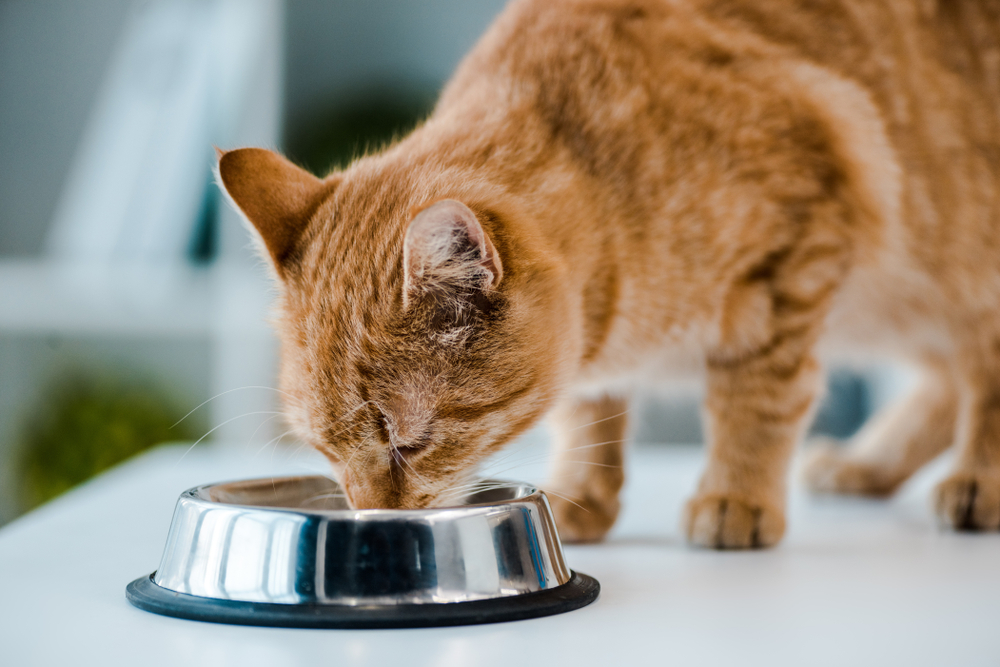

Final Thoughts
While cats can eat wheat, they don’t need it in their diet to be healthy. Their cat food will give them all the nutrients that they need if it contains high-protein content from an animal source. If your cat is not allergic to wheat, they can eat this grain if it’s added to the ingredients in their food. It can offer a few benefits, but it can’t replace their entire diet.
If you notice your cat showing signs of having an allergy, take them to the vet for an examination. Food allergies in cats are easily treated once they’re diagnosed. If your cat does not have a wheat allergy, they can eat foods made with wheat, like bread or crackers, as occasional snacks.
